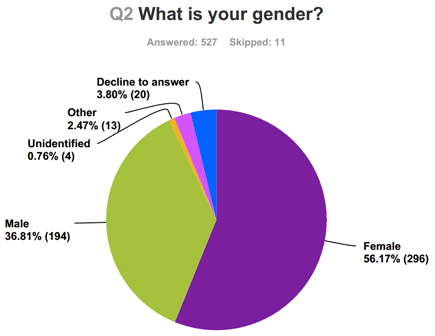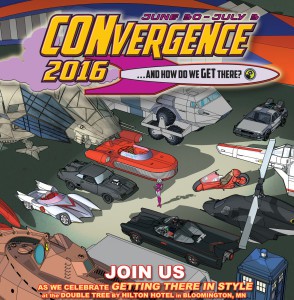The Convergence convention ended a few weeks ago, but the survey statistics (pdf) are already out. If you like gender diversity, you might want to join us next year.
The attendees skewed surprisingly young, but then, as a geezer, I might have a skewed perspective myself.
One thing that is missing from the questions asked is something about race/ethnicity — I know, it’s Minnesota, we’re really pale, but it would still be a good thing to pay attention to, especially since I thought there was more diversity there this year than last.




